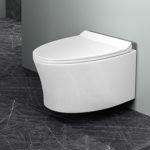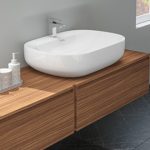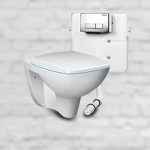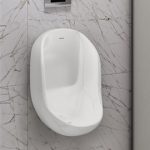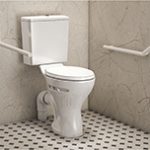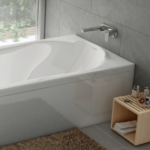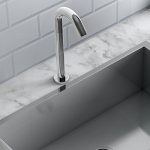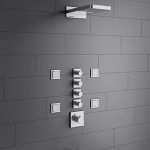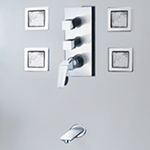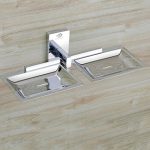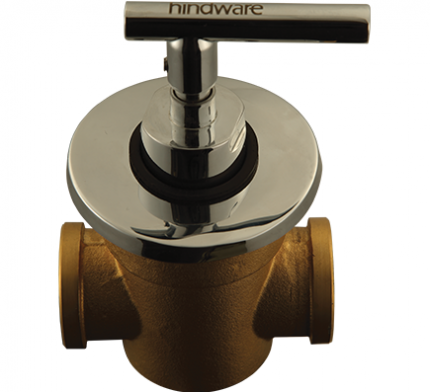Incorporating a control valve into your home's plumbing system offers numerous advantages, primarily the valve regulates the water flow, pressure, and temperature. These valves ensure that water is distributed efficiently and safely throughout your residence. By managing the flow rate, a flow control valve helps prevent potential issues such as pipe bursts or leaks caused by excessive pressure. This regulation not only safeguards your plumbing infrastructure but also contributes to water conservation and reduces utility expenses.
Selecting the appropriate flow control valve types is crucial for optimal performance. Common varieties include ball valves, gate valves, and globe valves, each designed for specific applications within the home. Proper control valve sizing ensures that the valve can handle the required flow rate without causing undue strain on the system. An appropriately sized valve maintains system efficiency and longevity.
For temperature regulation, a temperature control valve is essential. These valves maintain desired water temperatures, enhancing comfort and safety, particularly in applications like showers or heating systems. By preventing water from reaching scalding temperatures, they protect residents and improve overall home safety.
Key Benefits of Choosing Control Valves for Your Home
Enhanced Safety:
Temperature control valves play a vital role in maintaining safe water temperatures, preventing the risk of scalding. In residential settings, particularly in households with children or the elderly, sudden temperature spikes can be hazardous. These valves automatically adjust the water temperature to a pre-set limit, ensuring a consistent and safe output. This feature is especially useful in showers and faucets, providing peace of mind and enhancing overall safety.
Water Conservation:
Efficient water management is crucial for conserving resources and reducing utility bills. By accurately regulating the flow rate, a flow control valve minimises water wastage. For instance, in scenarios where high pressure isn't required, the valve reduces the flow, saving water without compromising functionality. Additionally, this contributes to environmental sustainability by conserving water.
System Protection:
Plumbing systems are prone to damage due to pressure fluctuations, which can lead to pipe bursts or leaks. Flow control valves protect the system by maintaining consistent pressure levels, preventing undue stress on pipes and fittings. This not only extends the lifespan of the plumbing infrastructure but also reduces maintenance costs.
Customisation:
A significant advantage of using control valves is the variety available to suit different plumbing needs. Common flow control valve types include ball valves for quick shut-off, gate valves for on/off control, and globe valves for precise flow regulation. Depending on the application, such as garden irrigation or indoor plumbing, selecting the appropriate valve type enhances performance and efficiency. This customisation allows homeowners to optimise water usage for specific tasks.
Efficiency and Longevity:
Proper control valve sizing is essential for maintaining system efficiency and extending the lifespan of plumbing components. An incorrectly sized valve can lead to issues such as water hammer (sudden pressure surges), increased wear and tear, and reduced flow efficiency. By ensuring the valve is appropriately sized for the required flow rate, homeowners can enhance the overall performance of their plumbing system while minimising energy consumption and maintenance costs.
Having control valves in your home's plumbing system is vital for efficient water management, system protection, and user safety. Careful consideration of control valve sizing and selecting the appropriate flow control valve types that include temperature control valves makes sure to have optimal performance and longevity of your plumbing infrastructure.
How to Choose the Right Control Valve for Your Home?
Selecting the appropriate control valve for your home's plumbing system is essential for ensuring efficient water flow, pressure regulation, and temperature control. Begin by identifying the specific application and the type of fluid such as water or gas that the valve will manage. This understanding will guide you in choosing the suitable flow control valve type, whether it be a ball valve, gate valve, or globe valve, each offering distinct advantages for various scenarios.
Accurate control valve sizing is crucial; a valve that is too large or too small can lead to inefficiencies or system strain. Consider the valve's flow characteristics, which describe the relationship between the valve opening and the flow rate. Choosing a valve with the appropriate flow characteristic such as linear, equal percentage, or quick opening ensures precise control over the fluid dynamics within your system.
Additionally, assess the materials of the valve body and internal components to ensure compatibility with the fluid and environmental conditions, thereby enhancing durability and performance. By carefully evaluating these factors, you can select a control valve that enhances the efficiency, safety, and longevity of your home's plumbing system.
By Premium Quality Control Valves from Hindware
Hindware offers premium quality control valves designed to enhance your home's plumbing efficiency and safety. Renowned for their durability and superior performance, these valves effectively regulate water flow and pressure, ensuring a steady and reliable water supply throughout your residence. Whether you require a flow control valve for managing water usage or a temperature control valve for maintaining safe water temperatures, Hindware provides a range of solutions tailored to your needs.
Manufactured using high-grade materials, Hindware’s control valves are resistant to corrosion and wear, ensuring long-term functionality and minimal maintenance. Their sleek, modern design seamlessly integrates with various bathroom and kitchen fixtures, enhancing the overall aesthetic appeal of your space. Additionally, precise control valve sizing guarantees optimal performance and energy efficiency.
Choose Hindware for reliable, efficient, and stylish control valves, ensuring a safe and comfortable home environment.


